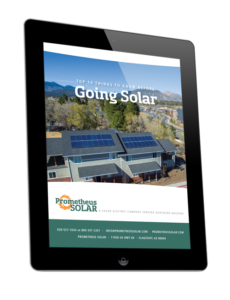Solar Power panels are an investment, to protect that new investment its important to properly maintain your batteries. In order to get the most out of your batteries follow these tips to extending battery life for your solar power system.
Limit the number of batteries
Try to limit the number of batteries in the bank. The more batteries equal more connections, each connection increases resistance, and resistance can cause uneven charging. Limit your bank to 16 batteries or less if you can.
Rotate your Batteries
If you have a large bank of batteries, rotate the batteries within the bank periodically. Batteries toward the middle of the bank may not receive as good of charge as the batteries on the outside. Rotating the batteries periodically, will help balance this out.
Use large battery interconnect cables
Using large battery interconnect cables, reduces resistance and allows for even charging. We suggest a 4/0 size cable for 12V and 24V systems, and 2/0 for 48V systems.
Not charging batteries can be damaging
Batteries should never be left uncharged for extended amounts of time. Make sure to leave your charging source on allowing the batteries to continue to charge. Leaving batteries uncharged can cause damage to them.
Use only distilled water
We do not recommend adding battery additives or electrolytes as they do more harm than good to the battery.
Properly charge your battery
There is no substitute for properly charging your batteries, unfortunately, there is really no way to verify battery desulfators increase battery life. The decision to use battery desulfators is up to you and if it’s worth the extra money.
Allow gassing or boiling
Gassing or “boiling” is normal for batteries and critical part of proper charging. Your batteries should gas on a regular basis, preferably daily. Batteries will begin gassing at approximately 14.1Vdc(12V nominal system), 28.2 Vdc (24V) or 56.4 Vdc(48V). This process will produce hydrogen and water, therefore, it is very important for your battery bank to have adequate ventilation to avoid hydrogen buildup. Think Hindenburg.
Battery Equalization
Equalization is a controlled overcharge of your batteries. Overcharging sounds bad, but it can actually be very good for your batteries. Since, individual cells within your batteries can be unevenly charged over time through the process of normal cycling. This prevents some cells from reaching a full-charge on a regular basis, which can allow sulfation to build up on the plates. Equalization provides an opportunity to return all the cells to full charge, as a result, knock some of the sulfation off the plates through the process of gassing. Furthermore, gassing can help to mix your electrolyte to prevent it from stratifying. Consult your inverter or charge controller manual for instructions on how to equalize and refer to your battery manufacturer for proper equalization instructions.
If you have questions, give us a call and we can provide instructions based on your specific equipment.

